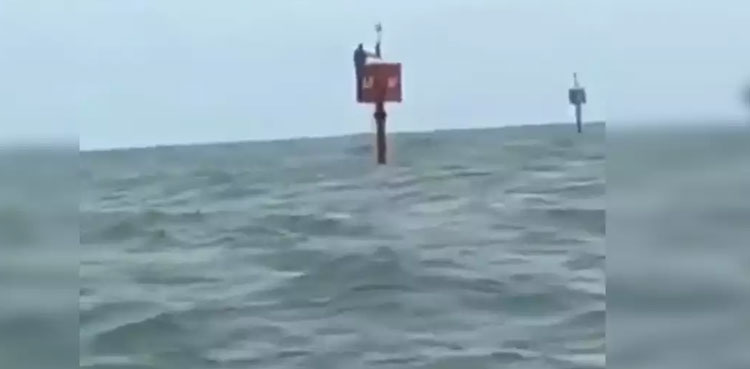
UNITED NATIONS: UN member states finally agreed Saturday to a text on the first international treaty after years of negotiations to protect the high seas, a fragile and vital treasure that covers nearly half the planet.
“The ship has reached the shore,” conference chair Rena Lee announced at the UN headquarters in New York shortly before 9:30 pm (0230 GMT Sunday), to loud and lengthy applause from delegates.
The exact wording of the text was not immediately released but activists hailed it as a breakthrough moment for the protection of biodiversity after more than 15 years of discussions.
The treaty is seen as essential to conserving 30 percent of the world’s land and ocean by 2030, as agreed by world governments in a historic accord signed in Montreal in December.
“This is a historic day for conservation and a sign that in a divided world, protecting nature and people can triumph over geopolitics,” said Greenpeace’s Laura Meller.
Following two weeks of intense talks, including a marathon overnight session Friday into Saturday, delegates finalized a text that now cannot be significantly altered.
The agreement will be formally adopted at a later date once it has been vetted by lawyers and translated into the United Nations’ six official languages, she announced.
UN Secretary-General Antonio Guterres commended the delegates, according to a spokesperson who said the agreement was a “victory for multilateralism and for global efforts to counter the destructive trends facing ocean health, now and for generations to come.”
The high seas begin at the border of countries’ exclusive economic zones, which extend up to 200 nautical miles (370 kilometers) from coastlines. They thus fall under the jurisdiction of no country.
Even though the high seas comprise more than 60 percent of the world’s oceans and nearly half the planet’s surface, they have long drawn far less attention than coastal waters and a few iconic species.
Ocean ecosystems create half the oxygen humans breathe and limit global warming by absorbing much of the carbon dioxide emitted by human activities.
But they are threatened by climate change, pollution and overfishing.
from International News Today - Breaking News, US News, World News https://ift.tt/tCUFV16
